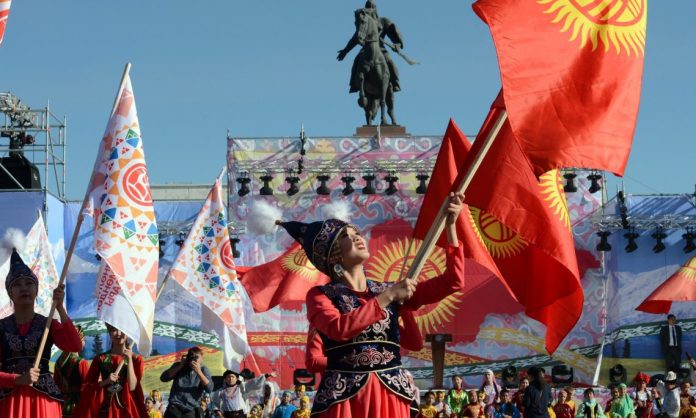This article is written by Sonali, pursuing a Certificate Course in International Commercial Arbitration and Mediation from LawSikho.
Table of Contents
Introduction
The Kyrgyz Republic is a land-locked place with a mining and tourism sector as its main economic components for GDP growth. The country heavily relies on foreign investment for its exponential growth and prosperity. To attract more investors, it entered into various investment agreements with an ISDS clause within them. Here, we will analyze what was its impact on their development and way forward.
What is an ISDS clause?
ISDS denotes Investor-State Dispute Settlement which allows an investor from one country to bring arbitral proceedings against the country in which it has invested without the intervention of the government of its home state. It avoids a state-to-state conflict, protects foreign citizens, and creates stability that rule of law will prevail. International Agreements including free trade agreements, bilateral investment treaties, multilateral investment agreements, investment contracts, and national investment laws. When an investor and the host-state agree to an ISDS clause, then on the occasion of breach or violation of rights of investor the dispute can be referred to an arbitral tribunal without recourse to or intervention of domestic courts provided it depends upon the type and scope of the clause. By reason of this, an investment company may negotiate its position when new law or provision negatively affects its business and can seek compensation in binding arbitration. It is a powerful legal tool for corporations to achieve objectives suiting their interests.
ISDS Clause in the Investment Law of Kyrgyz Republic
ISDS clause in Multilateral and Bilateral International Treaties
Article 18 of the Kyrgyzstan Laws of Investment (2003) provides the “Settlement of Investment Disputes” clause which includes settlement as per agreed mechanism between parties which includes redressal through authorized state bodies of the Kyrgyz Republic, consultation between parties, recourse to courts of the Kyrgyz Republic or Arbitration in accordance with International Centre for Settlement of Investment Disputes (ICSID) and UN Commission on International Trade Law (UNCITRAL). It grants a waiver of any judicial proceedings as a pre-condition of International Arbitration.
The Kyrgyz Republic has ratified the ICSID Convention in 1997 but has not fulfilled all the requirements to make it binding and recourse to Arbitration exists through the ICSID Additional Facility Rules. In 1997, another binding multilateral treaty, the UN Convention on Recognition and Enforcement of Foreign Arbitral Awards of 1958, was joined by the Kyrgyz Republic. On March 28, 1997, the CIS countries concluded a framework for the protection of rights of the investors. Article 11 states that “Investment Disputes within this Convention shall be decided by courts or arbitration courts of state parties to a dispute, Economic courts of the CIS countries and/or other International courts or International Arbitration courts.
ISDS clause in bilateral investment treaties
Other than the Kyrgyz Investment Law, 2003 foreign investors are given an option to arbitrate in the BIT’s Kyrgyzstan has signed and ratified with certain inconsistencies among them. 11 out of the 34 BIT’s provide arbitration as a method of dispute resolution and the rest provide none. A voluntary conciliation period of six months is also provided. It can be perceived as the rule of exhaustion of local remedies. Whether this requirement is a bar to jurisdiction or just a pre-condition that could be dismissed was answered by the ICSID Tribunals inconsistently.
The Tribunals, in Ethyl Corp. v. Can and Ronald S. Lauder v. the Czech Republic, held that it was a mere procedural requirement and it could be overlooked for the benefit of other considerations such as the impossibility of reaching a settlement within the established timeframe, the futility of negotiations between the parties or for the sake of a procedural economy. , but contrarily in Enron v. Argentina, in an obiter dictum, said that “Such a requirement is in the view of the tribunal very much a jurisdictional one. A failure to comply with that requirement would result in a determination of lack of jurisdiction”. This inconsistency can be owed to the wording of the provisions or the factual matrix of the case.
Other options
Some treaties include a fork-in-the-road provision which requires an investor to choose either the domestic courts or international forum of his choice for submission of his disputes. Once selected, the investor gets deprived of other dispute redressal forums. It is not a precondition for an investor to submit a claim in an international forum. Another BIT with India, 2019 includes the rule of “Local remedies first”. Before a dispute can be submitted to international arbitration, as a preliminary condition recourse to local courts or administrative tribunals is necessary. 
Experience of Kyrgyz Republic in international arbitration
Foreign Direct Investment is considered as a mainstream strategy to push the economic development of a country and giving protection to investors by signing Investment Agreements would attract them. The ISDS clause allows investors to bypass local remedies and take the dispute directly to international arbitration. The investment legislation contains investment-friendly provisions and the Kyrgyz Investment Law 2003 provides national treatment for foreign investors and full freedom to repatriate profits. Also, to date, the Kyrgyz Republic has entered into 34 BITs out of which 9 are signed but not in force. Additionally, they are party to 9 wider treaties including Energy Charter Treaty (ECT).
This actually turned against the Kyrgyz Republic as the number of claims arising out of investor-state dispute settlement against them has risen to about $ 1 billion and an estimated $ 925 million amount of claims are outstanding. This latter amount surpasses the amount of investment inflow in any given year of the Kyrgyz Republic. But the most egregious claim to date has actually arisen out of an individual contract between the Kyrgyz Republic and a Canada-based mining operator – Centerra Gold Inc. and not from an investment treaty.
In Centerra v. The Kyrgyz Republic (Centerra I, Kumtor Gold mine is an economically important project for the Kyrgyz Republic as it accounts for 10% of the GDP. This mine is operated by Centerra through its subsidiary Kumtor Gold Company. In 2006, the first dispute regarding exploration and development of certain gold mining sites was referred to the Permanent Court of arbitration under UNCITRAL rules. The Investment Arbitration Reporter, in this case, reported that Centerra’s financial report shows a decision by a domestic court ordering KGC to pay 1.2 million USD in Tax on land leased by the company. In 2009, parties settled the matter in $ 200,000 and entered into a new investment agreement. But in 2016, a second dispute arose when the Kyrgyz Republic decided to withhold certain Environmental approvals of Kumtor’s 2016 annual mine plan and certain other key operating and environmental approvals. Also, the state tried to roll back dividends paid to Centerra by its subsidiary. Several environmental charges were framed against the subsidiary company including mine waste disposal, unpaid water use and pollution fees, and damages to land. Lately, by 2019 they settled the disputes by entering into a Strategic Agreement.
The ISDS clause is hampering Kyrgyz Republic’s aim to sustainable development, transition to organic agriculture and low-cost carbon energy development, restoring natural ecosystems, saving biodiversity, and reducing disaster risks. Investment agreements are at odds with such policy considerations. Foreign investors use these investment agreements to challenge such environmental policies as it hinders their profit. Another issue with the Kyrgyz Republic is that they are not complying with some of the international arbitration awards passed against them. Sweden had raised a concern over non-compliance by the Kyrgyz Republic of an award passed in 2005 rendered by SCC in Stockholm. The host state was using it as leverage to settle at a lower amount and accordingly settled in September 2011. Overall, their experience with International Arbitration has not been so pleasant.
Challenges & way forward
The political instability due to prevailing corruption in the country, politically motivated influence on decisions affecting the economy, and influence of executives over judiciary are main concerns why they need innovative reforms not only in their investment laws but entire execution infrastructure including domestic courts and administrative tribunals. In 2012, the president launched a new initiative to reform the judicial system and prepared a commission for recommendations. The establishment of specialized courts can be a way to raise the level of expertise in the judiciary. In 2019, to limit the direct access of foreign investors to international arbitration, the Ministry of Economy came up with a draft of an ISDS clause to Amend Article 18 of the Investment Law of the Kyrgyz Republic 2003. They are:
- Investment disputes shall be resolved in accordance with previously agreed procedures between the investor and State bodies of the Kyrgyz Republic.
- In the absence of such agreement, investment disputes shall be resolved through consultations between the sides by addressing the matter to the authorized person on the protection of rights of business entities (Business Ombudsman) for a period of six months from the date of the first written request for consultations.
- If the investment dispute cannot be settled amicably in accordance with the provisions of paragraphs (1) and (2) of this Article, the dispute shall be settled through the judiciary of the Kyrgyz Republic within six months.
- If the investment dispute cannot be settled in accordance with the provisions of paragraph (1), (2), and (3) of this Article, the dispute shall be settled in accordance with international treaties of the Kyrgyz Republic or through international arbitration based on the agreement of the parties.
- Any investment dispute between a foreign and a domestic investor shall be settled through the judiciary of the Kyrgyz Republic unless the parties agree on any other procedure for resolving the dispute.
Knowing that corruption is the primary challenge in the country it can be assumed that the judiciary is flawed. Further, the judiciary will have to stretch it beyond its means to solve the disputes within 6 months. Also, amending only domestic laws will not stop the investors from approaching international arbitration. To achieve the same, the Kyrgyz Republic has to amend its BIT’s and multilateral treaties. The approach of the government towards investment law is fragmented. It is advisable for them to develop a model BIT.
Conclusion
The Kyrgyz Republic is already receiving an abundant amount of investor cases that cannot afford in the future. Relevant changes in their domestic laws and investment treaties are required for long-term sustainable development. Government stability is another important factor for investors to invest and not bring unnecessary claims against them. Therefore, the government must adhere to the above-mentioned criticism by UNCTAD and apply them for long-term development.
References
Students of Lawsikho courses regularly produce writing assignments and work on practical exercises as a part of their coursework and develop themselves in real-life practical skills.
LawSikho has created a telegram group for exchanging legal knowledge, referrals, and various opportunities. You can click on this link and join:
 Serato DJ Crack 2025Serato DJ PRO Crack
Serato DJ Crack 2025Serato DJ PRO Crack










 Allow notifications
Allow notifications


